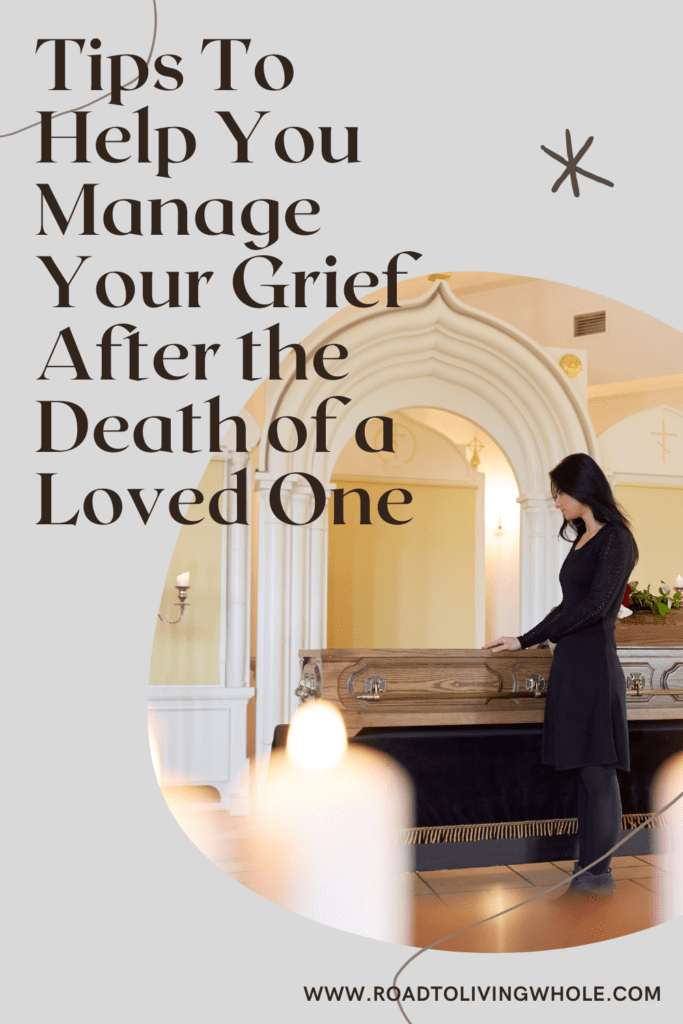Nobody wants to think about losing a loved one, yet it happens to everyone, and when it does, it can be tough to know what to do. There is a lot to think about and do, from alerting the appropriate authorities to dealing with financial concerns, attempting to wrap your brain around the cost of probate, and talking to youngsters about their deceased relative.
However, once the initial shock has worn off and the funeral and all of the practicalities have been taken care of, you may feel a little disoriented. When there is nothing left to occupy your mind and keep you busy, grief can hit you like a tonne of bricks. Unfortunately, we can’t make that emotion go away for you, but we can offer some advice on how to start moving forward with your life and dealing with it.
The raw intensity of your loss will most likely decrease after some time, but it is critical that you do not rush the mourning process.
It hits you in the face in the first few days and weeks. You can feel it literally, with your heart pounding and you being unable to breathe, as well as other symptoms such as a loss of appetite and inability to sleep. The strength of those sentiments will fade with time. It doesn’t feel that way at first, but it will. You’ll find yourself smiling again, having longer periods of time where you’re not overwhelmed, and life returning to some kind of normalcy, albeit a very different kind of normalcy.
However, it is critical to realize that grief is a highly personal experience; everyone will experience it in various ways and for different lengths of time, and there is no right or wrong way to deal with it. Sometimes, months or years later, you’re minding your own business when something reminds you of the person, and it feels as fresh as it did when it happened. That is very normal.
Moving on – how do you do it?
Accepting what has happened is one of the first steps you must take in order to go on with your life. Acceptance is one of the most difficult phases of the process, but you can’t move forward until you’ve attained it. Going to the funeral home to see the body can help some people understand that the person is no longer alive. For others, the funeral service or the placing of the cemetery headstones is a tangible manner of saying goodbye. Accepting it emotionally, on the other hand, can be far more difficult. Again, there is no right or wrong way to accomplish this, but you will eventually accept that the individual will not return.
Let yourself cry
Even now, with so much greater understanding of emotions and mental health, there is still a stigma attached to crying and expressing emotions, especially if you are male. However, it is critical to acknowledge your sentiments and allow yourself to express them, even if it means sobbing. Bottled-up emotions will not help you move forward and may perhaps hold you back in the grieving process.
Arrange a funeral that they would have loved
Funeral planning can be challenging, both practically and emotionally. Religious views, budgetary restraints, and family politics, and of course at the moment, COVID-19 regulations may bind you, but if possible, choose a funeral that reflects who your loved one was as a person. If they were a larger-than-life, cheerful persona, why not have people dress up in bright attire, or if they were a soccer lover, have them wear their favorite team’s jersey? There is no requirement that you wear full black. You can also be creative with the music you listen to.
Keep talking about them
Just because we can’t see or speak to our loved ones anymore doesn’t mean we can’t talk about them or to them. Some people find it reassuring to go to their final resting place and talk to their loved ones, or to chat to images of them, especially after something good or bad has happened in their life. Many religions believe in an afterlife, which might provide solace to the grieving. Talking about the person can also be beneficial; tell people about the type of person they were and how they influenced your life.
Continue with their legacy
If your loved one performed something special, such as humanitarian work or battled for a specific cause, why not continue their good work? As a means of honoring them, if they believed in something, such as education, go out there and get a better education and learn something new. If they liked traveling, plan a trip to a new location. There is no better way to appreciate a loved one than to live some of their experiences or wishes.
Remember the joy they brought to your life
One of the most effective methods to remember someone and move past the initial stages of sorrow is to consider how that person influenced your life. Perhaps they fostered in you a love of learning or travel? Perhaps they were the person who taught you to drive or draw? Concentrating on the pleasant aspects of life can make a significant difference.
Reach out for help if and when you need it
As a society, we tend to view asking for help as a show of weakness, but knowing when we need help and having the confidence to ask is something to be admired. If you are having difficulty, it is a good idea to seek expert assistance. It’s possible that you just need to talk to someone outside of your inner group in order to get a more objective perspective on your situation. You may require additional assistance in the form of therapy, counseling, or medicine at times. Remember, you have nothing to be embarrassed about!
Death and the loss of a loved one will always be a part of your life, and you may never really return to the person you were before. However, while the pain will always be present, it will get less intense over time. You can learn to grieve without avoiding it and with acceptance, which is the healthiest approach to deal with death.









